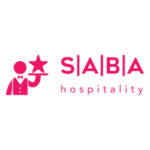 The hospitality industry, renowned for its vibrant and fast-paced environment, presents unique challenges that significantly impact the well-being of its workforce. Workers often endure long hours, high levels of stress, and, in many cases, unrestricted access to alcohol, which collectively contribute to a higher susceptibility to substance abuse.
The hospitality industry, renowned for its vibrant and fast-paced environment, presents unique challenges that significantly impact the well-being of its workforce. Workers often endure long hours, high levels of stress, and, in many cases, unrestricted access to alcohol, which collectively contribute to a higher susceptibility to substance abuse.
The demanding nature of hospitality jobs, coupled with the pressure to provide exceptional customer service, can lead to unhealthy coping mechanisms, including the use of drugs or alcohol. This industry’s culture, which sometimes normalizes or even encourages substance use, further exacerbates the problem, making it a widespread concern among hospitality workers.
Statistics on addiction among hospitality workers
While I can’t provide specific current statistics, studies have consistently shown that the rate of substance abuse within the hospitality sector is significantly higher compared to many other industries. Key statistics that highlight the prevalence of addiction among hospitality workers typically include:
- Percentage of Workers Reporting Substance Use: A notable proportion of hospitality workers report engaging in substance use, with percentages often exceeding national averages for other fields.
- Comparison of Addiction Rates in Hospitality vs. Other Industries: Research suggests that the hospitality industry ranks high in terms of substance abuse rates when compared to other sectors, underscoring the need for targeted interventions.
- Specific Substances Most Commonly Abused: Alcohol, due to its accessibility, is frequently abused, along with a range of other substances, including prescription medications, marijuana, and cocaine, reflecting the varied nature of substance abuse within the industry.
Impact of addiction on hospitality workers
The ramifications of addiction among hospitality workers extend far beyond the workplace, affecting personal lives, job performance, and professional relationships. On a personal level, substance abuse can lead to significant health issues, deteriorate mental health, and strain personal relationships.
Professionally, addiction can result in decreased productivity, increased absenteeism, and a higher risk of accidents on the job. The consequential stress and anxiety not only undermine the individual’s ability to perform their duties effectively but also impact the overall atmosphere and functionality of the workplace. The cyclical nature of stress and substance use creates a difficult pattern for many workers in the industry to break without proper support and interventions.
Recovery challenges for hospitality workers
Hospitality workers face distinct obstacles on their path to recovery, largely influenced by the nature of their profession. These include:
- Access to Treatment with a Demanding Work Schedule: The long and often unpredictable hours can make it difficult for those in the hospitality sector to find time for treatment programs, which typically operate on a more fixed schedule.
- Overcoming Environmental Triggers and Peer Pressure: The hospitality environment often includes readily available alcohol and social culture that may encourage substance use, presenting significant challenges for individuals attempting to abstain.
- The Importance of Support Systems and Confidentiality: Having a reliable support system is crucial, yet the stigma of addiction may deter individuals from seeking help. Moreover, concerns about confidentiality can further inhibit hospitality workers from accessing the treatment they need.
Treatment options for hospitality workers
For hospitality workers navigating the journey of recovery, several treatment options are tailored to accommodate their unique needs. ADAPT Programs recognizes these challenges and offers specialized treatment plans designed for those within the industry.
- Outpatient Programs Allowing for Continued Work: These programs are structured to provide flexibility, allowing individuals to receive treatment without having to take extended time off from their jobs. This is particularly beneficial for hospitality workers who cannot afford to take a leave of absence but are committed to their recovery.
- Inpatient Programs for More Severe Cases: For individuals who require a more immersive treatment experience, inpatient programs offer a comprehensive approach to recovery, providing the intensive support needed to address deeper-rooted issues related to addiction.
- Support Groups and Therapy Options: These are integral components of the recovery process, offering a sense of community and understanding. Support groups and therapy provide a platform for sharing experiences and strategies for coping, crucial for long-term success in recovery.
ADAPT Programs’ approach to helping hospitality workers
ADAPT Programs is at the forefront of addressing addiction within the hospitality industry, offering targeted support and treatment that acknowledges the unique pressures and challenges faced by these workers. With an understanding that no two journeys to recovery are the same,
ADAPT Programs offer a range of services, including Detox Programs, which are the first step toward a life free from addiction. Tailored recovery plans are developed for each individual, considering their specific circumstances and needs. Furthermore, Relapse Prevention strategies are integrated into every plan, ensuring that individuals have the tools and support necessary to maintain their sobriety in the long term.
















